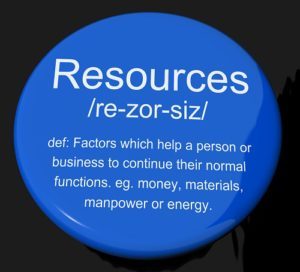Most companies have some form of sales training programs for sales resources as it is clear that sales training is key to sales effectiveness. The better sales resources are trained on the products they are selling, the industry they are operating in, and trained on sales practices in general, the more successful they will be. Although, sales training by itself has some gaps and these gaps can be resolved with the addition of sales coaching.
One of the gaps with sales training is the frequency with which it occurs. This can vary from organization to organization but the frequency is typically very low and usually a one time event. There are companies that have training that recurs every month, every quarter, or every year, but the subjects and concepts that are covered are typically new areas and rarely repeat.
The challenge with the fact that sales training has a low level of frequency and repeating of information is that people only retain a certain amount of information that that they are exposed to during training. This means that we can attend a great training program and only take a portion of the information away with us and what we do take away could continue to diminish without being exposed to the information in any kind of recurring way.
The area of retention and adoption of sales training information is a key area that sales coaching can help with. Coaching is designed to continue to recur on a weekly, monthly, or quarterly interval. With this recurring structure, information provided in training such as concepts, processes, and methodologies can continue to be discussed and reinforced during the coaching sessions. Without sales coaching, a sales resource may go back to their old ways of doing things after training. With sales coaching, a company can get the growth and change that they are paying for when they invest in sales training programs.
Another gap to consider with sales training programs is that the majority of the information provided is standardized from a standpoint that the same information is provided to a group of people. The challenge here is that we are all different in terms of level of experience, work ethic, time management skills, personality style, philosophies, etc. When you map standard processes and programs to a group that has many subtle differences, the end result can inconsistent and unpredictable.
Sales coaching can help complement the standardized material from sales training programs by providing a personalized and customized service. By meeting one on one with clients, the information discussed can be tailored specifically to that individual. This allows the sales coaching to can go back and give attention to any areas that were not covered in enough detail during the sales training.
There is a common misconception out there that sales coaching and sales training are the same thing. The truth is that they are very different and are not capable of replacing one another and sales coaching should be viewed as a complement to sales training. The two work together very well and fill gaps that the other may have.
Companies can invest a tremendous amount of time and money in the area of sales training, In many cases, successful adoption of the information provided may be key to a company’s strategic direction. By adding sales coaching to existing sales training programs, a company will optimize the training effort driving an increase in the return on investment for the time and money that is spent on training.
Michael Halper is an ICF certified coach that works with individuals and organizations helping to drive growth and improvement. For more information about coaching and development visit Compass Coaching you can read more about Sales Training or Sales Coaching.
(364)





